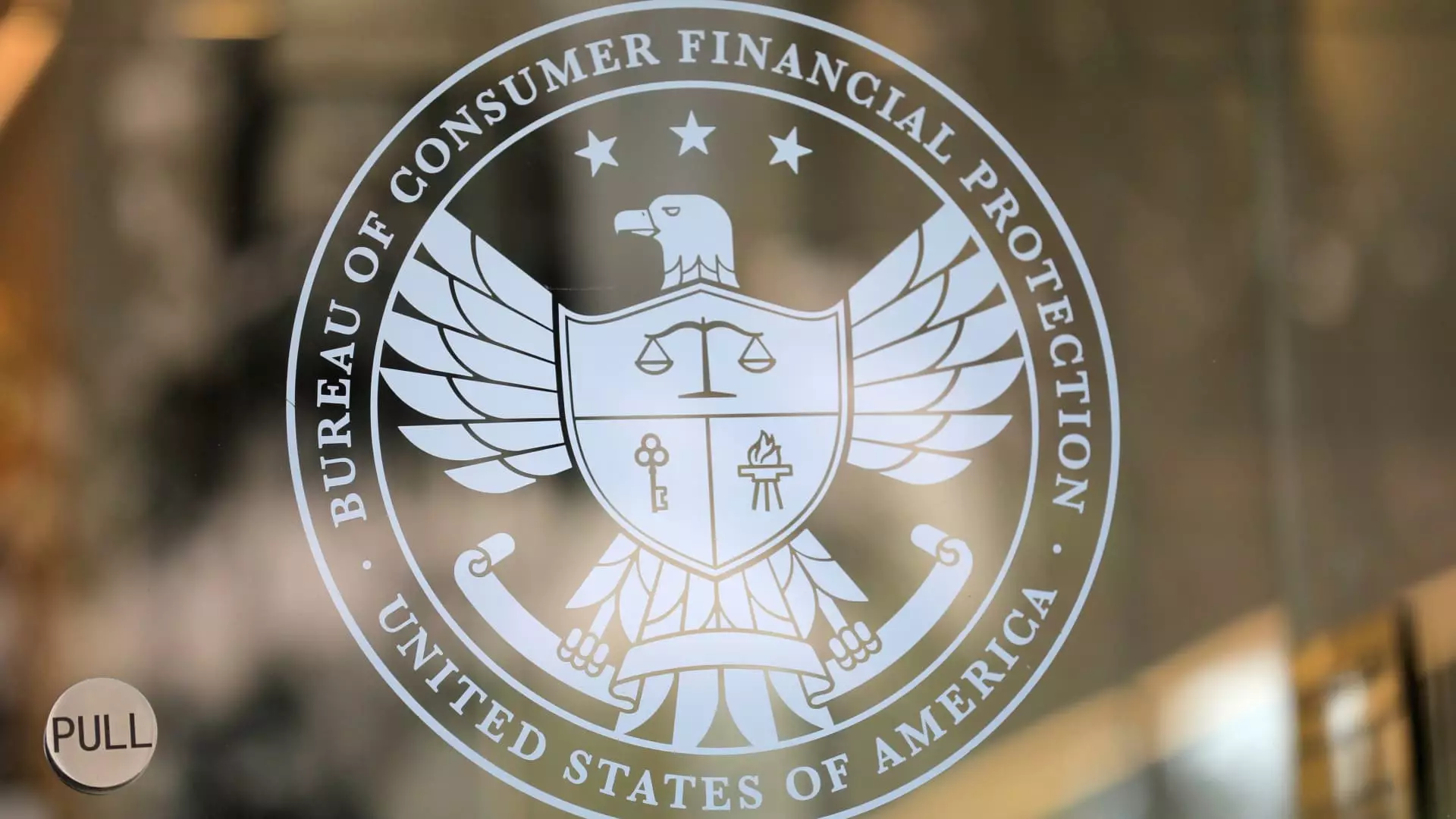In a tumultuous political landscape, the Consumer Financial Protection Bureau (CFPB) emerges as one of the most strategic targets for political undermining—particularly during the Trump administration. Established in the wake of the financial crisis, the CFPB was designed to be a guardian for consumers against predatory practices in the financial sector. However, its future looks increasingly uncertain as recent political maneuvers threaten its very existence. The alarming reality is that a mere disconnect from bipartisan support could strip away vital protections for millions of Americans who rely on this federally instituted safeguard.
As recent court hearings reveal, the administration’s attempts to dismantle the CFPB have fostered an atmosphere of ambiguity regarding its ability to serve consumers effectively. Legal challenges and administrative changes seem poised to render the bureau a shadow of its former self. What once embodied a robust, consumer-centric approach to financial oversight is now at risk of morphing into a frail regulatory entity with diminished resources and clarity.
The Unraveling of Consumer Protections
Under the Trump administration, the CFPB faced cutbacks that raised legitimate concerns about its ability to carry out its essential functions. Legal debates led by U.S. District Judge Amy Berman Jackson exemplify the stakes involved. While the judge ruled against immediate mass layoffs, the long-term implications of restructuring remain a cause for concern. We find ourselves at a crossroads where the agency may be reduced to a skeleton crew, barely capable of fulfilling its mission to protect consumers.
This drastic scaling back threatens fundamental services, including consumer complaint oversight, bank supervision, and enforcement of laws designed to prevent discriminatory lending practices. With growing uncertainty within the agency, the question isn’t merely about operational efficiency; it jeopardizes consumer trust in the financial system as a whole. In a landscape direly shaped by past economic collapses, this could set a precarious precedent where financial injustice becomes more commonplace.
Impact on Innovation and Startups
Far beyond the bureaucratic corridors of power, the ambiguity surrounding the CFPB’s role trickles down to innovators in the financial services sector. Expert Phil Goldfeder aptly highlights the “lack of clarity regarding regulatory structures” as a potentially stifling force for entrepreneurs looking to disrupt financial services positively. This uncertainty could inhibit growth in fintech markets, gumming up the gears of innovation by leaving companies guessing about compliance and regulatory expectations. It’s an ironic twist that those who are poised to champion consumer interests are often left in the dark, creating a chilling effect on potential advancements.
Rather than fueling ingenuity, the lack of regulatory guidance may push startups toward less transparent practices, fearing government scrutiny. As the bureau’s oversight shrinks, unscrupulous companies may find opportunities to operate without checks and balances.
The Perilous Road Ahead
The troubling trend of repealing important measures, such as the cap on overdraft fees, paints a bleak picture of the CFPB’s direction. Originally slated to reinforce financial fairness, Congress finds itself poised to overturn such regulations. The motivation here seems blatantly political rather than rooted in consumer welfare; the priority appears to be deregulating at any cost. Without these protections, banks have little incentive to maintain low fees, posing a risk of reverting to exploitative practices reminiscent of the pre-crisis era.
The rift between banks and nonbank financial institutions continues to widen as lawmakers seek to favor established players over their more agile counterparts. While Zelle and other bank-related services remain under scrutiny, fintech apps like Venmo and Cash App are left unregulated. The uneven regulatory landscape will only further complicate the consumer experience, leaving many without a reliable avenue for redress.
The Consequences of Inaction
One must contemplate the broader implications of a weakened CFPB on consumer complaints and resolutions. Currently, the bureau is inundated with around 25,000 consumer grievances weekly, which collectively reflect real injustices faced by everyday Americans. The system is built on the premise that grievances will lead to actionable outcomes; however, without the necessary enforcement mechanisms, complaints could languish unaddressed. This stagnation creates a false sense of security among consumers who believe they are invoking their rights, only to find that the system fails them at the most critical moments.
Consumer advocates are understandably alarmed by this erosion. The very framework intended to empower individuals may instead devolve into a mere facade of oversight, where the lack of response to grievances renders the system nearly useless. As public sentiment turns sour and anxiety permeates the consumer landscape, it becomes even more crucial for engaged citizens to voice their concerns and advocate for a CFPB that truly serves its intended purpose.
In this increasingly precarious political climate, the CFPB cannot afford to fall victim to whim and partisan interests. Protecting the American consumer should remain a priority for all, regardless of political affiliation; after all, financial well-being is a universal concern that transcends transactional norms. The fate of the CFPB—an institution once heralded as a stabilizing force for consumers—hangs in the balance, and it is incumbent upon us all to rally in its protectiveness.

Leave a Reply